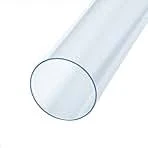نويابىر . 05, 2024 04:48 Back to list
hdpe sewer pipe
The Benefits and Applications of HDPE Sewer Pipes
In the world of wastewater management and civil engineering, the materials we choose for sewer systems play a crucial role in the longevity, reliability, and overall efficiency of the infrastructure. One such material that has gained significant popularity over recent years is High-Density Polyethylene (HDPE). Known for its durability, flexibility, and resistance to various environmental factors, HDPE sewer pipes have transformed the way we approach sewage disposal systems and are becoming increasingly prevalent in modern construction.
Understanding HDPE
High-Density Polyethylene is a thermoplastic polymer produced from the monomer ethylene. It boasts a high strength-to-density ratio, making it an ideal candidate for various applications, including pipes, containers, and plastic products. HDPE is well-regarded for its exceptional resistance to physical impacts, chemicals, and UV radiation. As a result, it does not corrode or degrade in harsh environments, which is a significant advantage when considering sewage systems that regularly come into contact with potentially harmful substances.
Advantages of HDPE Sewer Pipes
1. Durability and Longevity One of the primary reasons for the growing adoption of HDPE in sewer pipe applications is its durability. Unlike traditional materials such as concrete or metal, HDPE pipes can withstand heavy loads without cracking or breaking. Their resistance to chemical corrosion also extends their lifespan, often exceeding 50 years when installed correctly.
2. Flexibility HDPE pipes are remarkably flexible, allowing for easy installation in various terrains. This adaptability means fewer joints are required, reducing the risk of leakages and structural failures. The flexibility also makes HDPE an ideal choice for areas prone to soil movement or shifting, as the pipes can bend without breaking.
3. Lightweight Compared to their concrete or metal counterparts, HDPE pipes are much lighter, making transportation and installation easier and more cost-effective. This lighter weight leads to reduced transportation costs and enables quicker and more efficient installation practices.
hdpe sewer pipe

4. Resistance to Roots and Blockages Tree roots are a common issue that can cause significant blockages in traditional sewer systems. The smooth interior surface of HDPE pipes reduces friction, minimizing the likelihood of blockages caused by debris or roots. Even if roots infiltrate the sewer system, the flexibility of HDPE allows the pipes to accommodate some movement without cracking.
5. Environmental Impact and Sustainability As the world becomes more attuned to environmental sustainability, HDPE pipes shine as a favorable choice. Most HDPE products are recyclable, and their production generates fewer greenhouse gases compared to traditional materials. Choosing HDPE can significantly lower the overall carbon footprint of sewer project installations.
6. Cost-Effectiveness While the initial costs may be comparable to other piping systems, the long-term savings associated with HDPE pipes are substantial. Their durability reduces the need for frequent repairs and replacements, ultimately saving money in maintenance and labor costs over time.
Applications of HDPE Sewer Pipes
HDPE sewer pipes are versatile and can be utilized in various applications, including
- Municipal Sewer Systems Many cities are adopting HDPE pipes for new sewer systems due to their efficiency and longevity. - Agricultural Drainage The flexibility and resistance of HDPE make it suitable for agricultural applications, ensuring effective drainage in fields and reducing soil erosion. - Industrial Wastewater Management In industrial settings where chemical resistance is paramount, HDPE pipes provide optimal solutions for the safe disposal of wastewater. - Stormwater Management HDPE can also be used for stormwater drainage systems, helping manage excess rainfall and prevent flooding.
Conclusion
High-Density Polyethylene sewer pipes represent a significant advancement in wastewater management technology. Their durability, flexibility, and resistance to various environmental challenges make them an ideal choice for both municipal and industrial applications. As cities and organizations strive for more sustainable infrastructure, HDPE piping systems offer a reliable and eco-friendly solution for effective sewage disposal. The ongoing growth of HDPE in this sector reflects a broader understanding of the importance of choosing appropriate materials that contribute to the longevity and functionality of essential services. With its myriad benefits, it is no wonder that HDPE sewer pipes are paving the way for the future of wastewater management.
-
Durable PP Rigid Sheet: Lightweight, Chemical Resistant Solutions
NewsAug.21,2025
-
PVC Grey Sheet for Extraction: Chemical Resistant & Durable
NewsAug.19,2025
-
Durable PVC Pipe Fittings for Plumbing & Irrigation Needs
NewsAug.18,2025
-
HDPE Steel Belt Reinforced Spiral Corrugated Pipe | High Strength
NewsAug.17,2025
-
HDPE Pipe Fittings: Durable, Leak-Proof Solutions
NewsAug.16,2025
-
Premium CPVC Sheet: High-Temp & Chemical Resistant Solutions
NewsAug.15,2025

